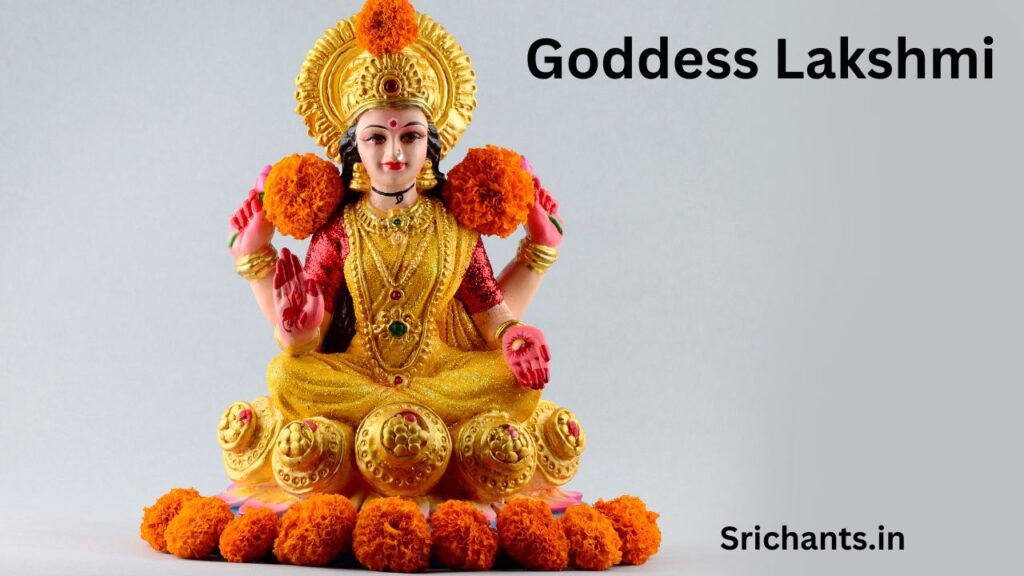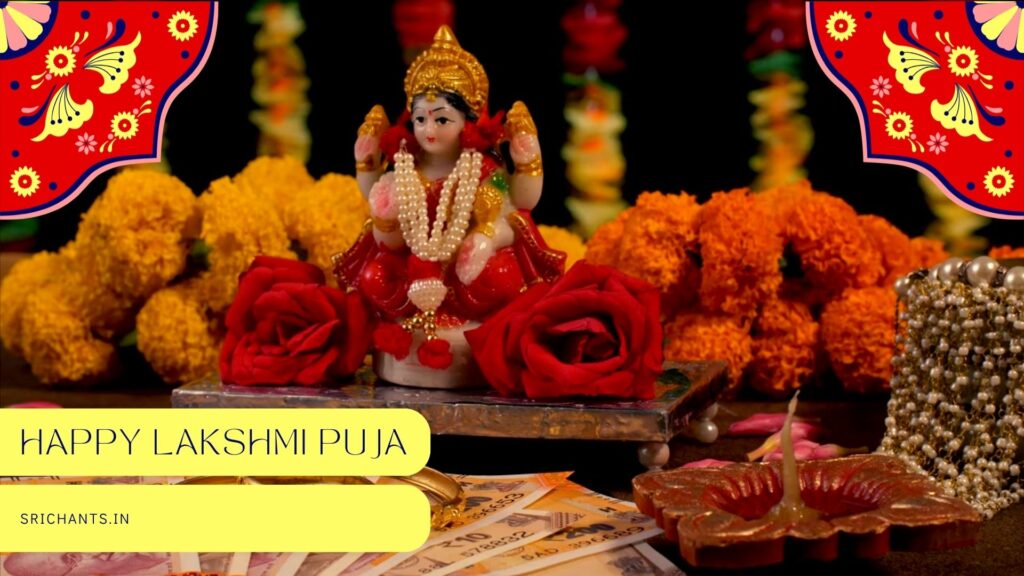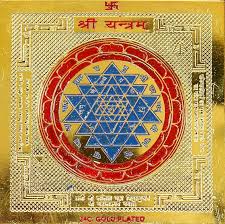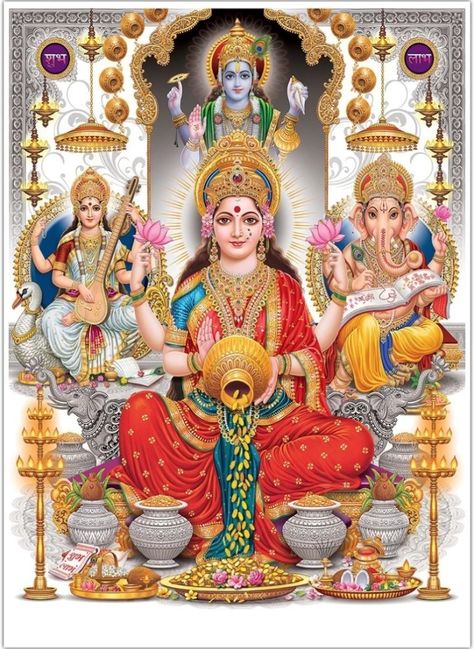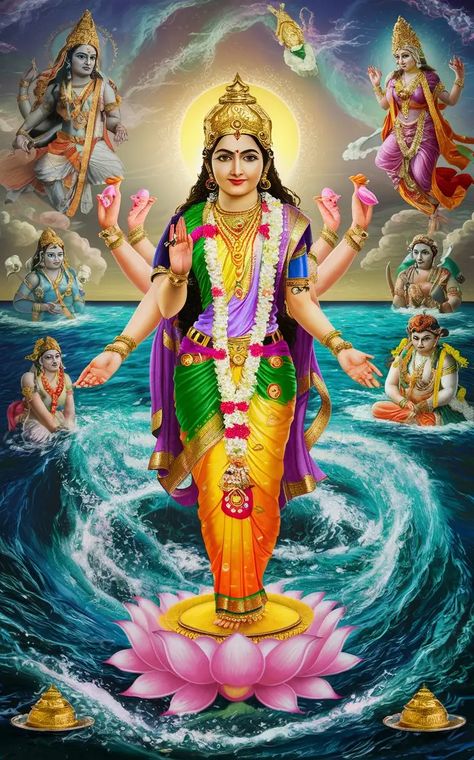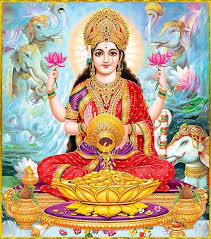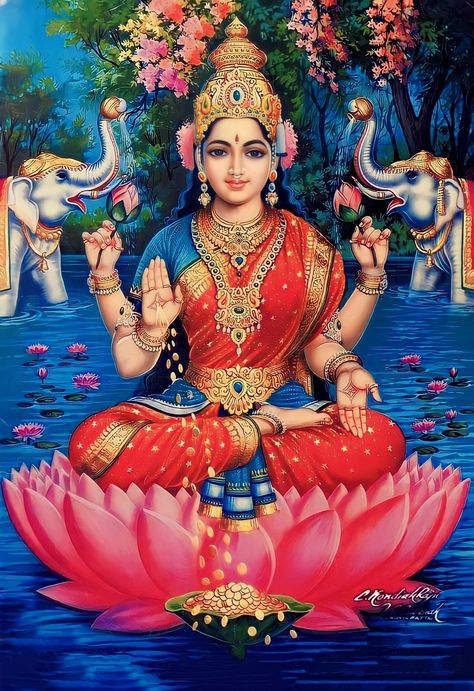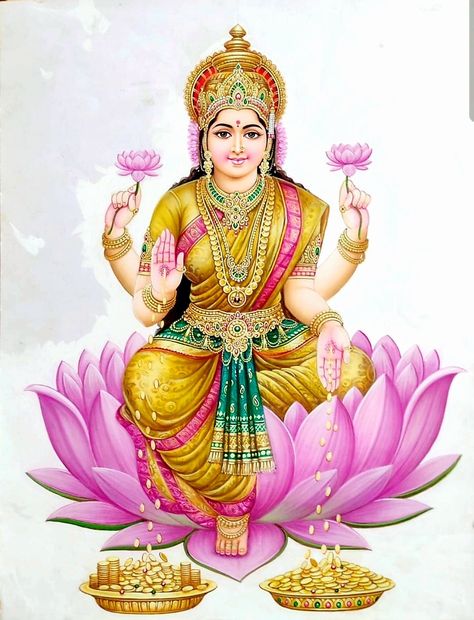Goddess Lakshmi: Origin and Mythology
Introduction
Hinduism is a religious tradition that attributes divine status to deities, esteemed on par with the gods. Delirious Lakshmi holds a prominent position among the deities revered in Hindu culture. As the goddess of affluence, prosperity, abundance, and purity, she is held in high regard. This article will examine the mythology and origins pertaining to the goddess Lakshmi, encompassing an analysis of her attributes, significance, and diverse manifestations.
Significance of Goddess Lakshmi
Lakshmi is derived from the Sanskrit word “Lakshya,” which signifies ambition, aim, or purpose. As such, Goddess Lakshmi functions as a symbol that urges people to maintain their concentration on their objectives. Upon careful observation of her physical attributes, one is able to discern a multitude of qualities that parallel diverse facets of existence.
In Hinduism, the four responsibilities of an individual are symbolized by the four hands of Goddess Lakshmi: Dharma (righteousness), Artha (wealth), Kama (desires), and Moksha (liberation). While grasping a lotus flower, she exemplifies chastity and the capacity to resist the influence of worldly Maya, which is an illusion. Additionally, the lotus represents Moksha, or complete liberation.
Vehicles of Lakshmi
Frequently, goddess Lakshmi is portrayed seated on an elephant or an owl. Although both elements hold considerable importance in her depiction, she is more frequently linked to the owl. Opioid signifies sacrificial virtue, purity, and the capacity to traverse obscurity; it represents the correct course of action, even in the face of adversity.
Lakshmi as the Goddess of Wealth
A significant portion of the population associates Goddess Lakshmi primarily with material prosperity. She is frequently portrayed holding a container filled with gold coins, which represents wealth and prosperity. Nevertheless, her favors transcend mere material possessions. Lakshmi is symbolic of spiritual development, affluence, and the overall improvement of individuals across multiple domains.
Origin of MahaLakshmi
There exist numerous puranic narratives that detail the progenitorship of the goddess Lakshmi. According to one account, she arose from a lotus flower during the process of creation. The roiling of the ocean, also referred to as Samudra Manthan, is the subject of another well-known tale.
In pursuit of the elixir of immortality, both the devas (gods) and asuras (demons) agitated the Ksheersagar (ocean of milk) during Samudra Manthan. In the midst of the ocean’s bounty, Goddess Lakshmi materialized and made the enduring decision to join the devas, where she ultimately entered into matrimony with Lord Vishnu.
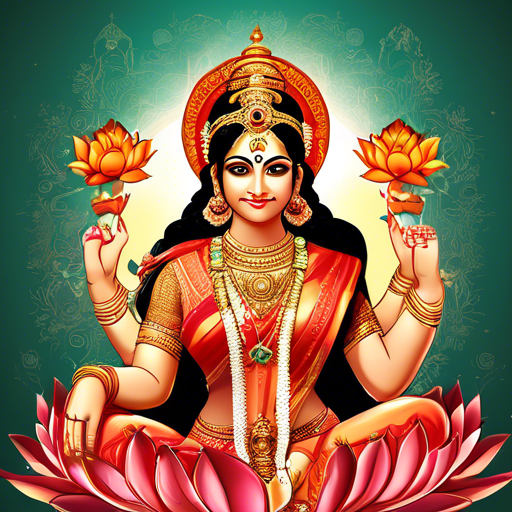
Lakshmi as Prakriti
The fundamental concepts of Purusha and Prakriti are significant in Hindu spirituality. Purusha is symbolic of everlasting consciousness, whereas Prakriti denotes motion and vitality. Goddess Lakshmi represents Prakriti in the Vaishnavite tradition, whereas Lord Vishnu symbolizes Purusha. Their eternal interaction is fundamental to existence.
Ashta Lakshmi: Eight Manifestations of Lakshmi
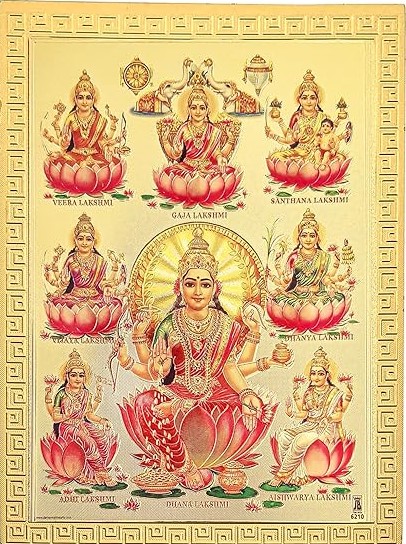
The eight manifestations of Goddess Lakshmi are referred to as Ashta Lakshmi. Every manifestation of Ashta Lakshmi symbolizes a distinct origin of affluence and authority. Let us examine the following eight forms of Lakshmi:
- Adi Lakshmi: Adi Lakshmi is considered the first or ancient form of Lakshmi.
- Gaja Lakshmi: Gaja Lakshmi is depicted with elephants on either side, symbolizing wealth and prosperity.
- Vijaya Lakshmi: Vijaya Lakshmi represents victory and success in all endeavors.
- Dhanya Lakshmi: Dhanya Lakshmi symbolizes blessings of prosperity and abundance, including agricultural wealth.
- Dhana Lakshmi: Dhana Lakshmi represents material wealth and financial prosperity.
- Vidya Lakshmi: Vidya Lakshmi embodies knowledge, wisdom, and the importance of education.
- Veera Lakshmi: Veera Lakshmi symbolizes courage, strength, and fearlessness.
- Sanatana Lakshmi: Sanatana Lakshmi represents progeny, continuity, and the perpetuation of family lineage.
Lakshmi in Hindu Texts
Goddess Lakshmi is frequently referenced in the Rig Veda, Atharvaveda, and Puranas, among other Hindu texts. The Vishnu Purana devotes a number of sections in its entirety to her, delving into her narratives, attributes, and importance.
Lakshmi is mentioned frequently in the Shakta Upanishads, which are devoted to the tridevis (Lakshmi, Parvati, and Saraswati). The Saubhaghya Lakshmi Upanishad, which is a sacred text dedicated solely to her, explores her spiritual attributes, powers, and characteristics. The Upanishad, which initially prioritized material pursuits, progressively shifted its emphasis towards spiritual development and transcendence.
Festivals Associated with Lakshmi
Goddess Lakshmi occupies a pivotal role in Diwali, the most important festival in India. Diwali represents the triumph of enlightenment over ignorance, righteousness over darkness, and good over evil. People cleanse their residences and beseech Lakshmi to bestow prosperity and purity upon them during Diwali.
Gaja Lakshmi Puja, an additional noteworthy festival linked to Lakshmi, is conducted on Sharad Purnima, a full moon day in the Hindu month of Ashwin. This festival commemorates the harvest and denotes the conclusion of the monsoon season. Amid the bountiful harvest, devotees entreat Lakshmi for her favor and entreat her graces.
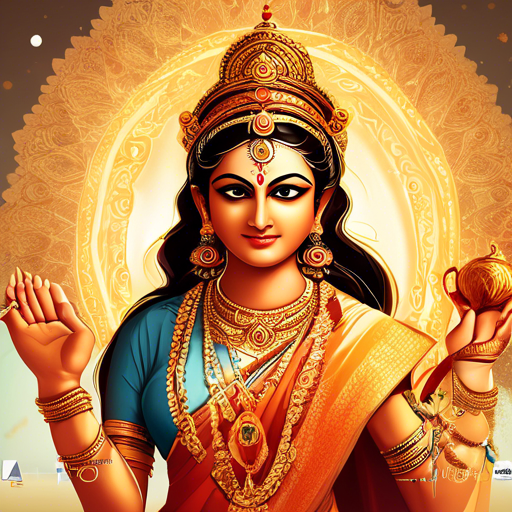
Conclusion
In Hindu culture, the deity Lakshmi, who symbolizes affluence, prosperity, and purity, is of the utmost importance. Her origin and mythology, as portrayed in numerous Hindu scriptures, serve to underscore her complex character and the significance of spiritual development in conjunction with material affluence. By seeking her blessings, individuals gain the ability to concentrate on their objectives, persevere in the face of obstacles, and embrace prosperity on both a material and spiritual level. Lakshmi, who is venerated during spiritual gatherings such as Diwali, continues to motivate and elevate devotees worldwide.
#lakshmi #wealth #ashtalakshhmi #origin #mythology
